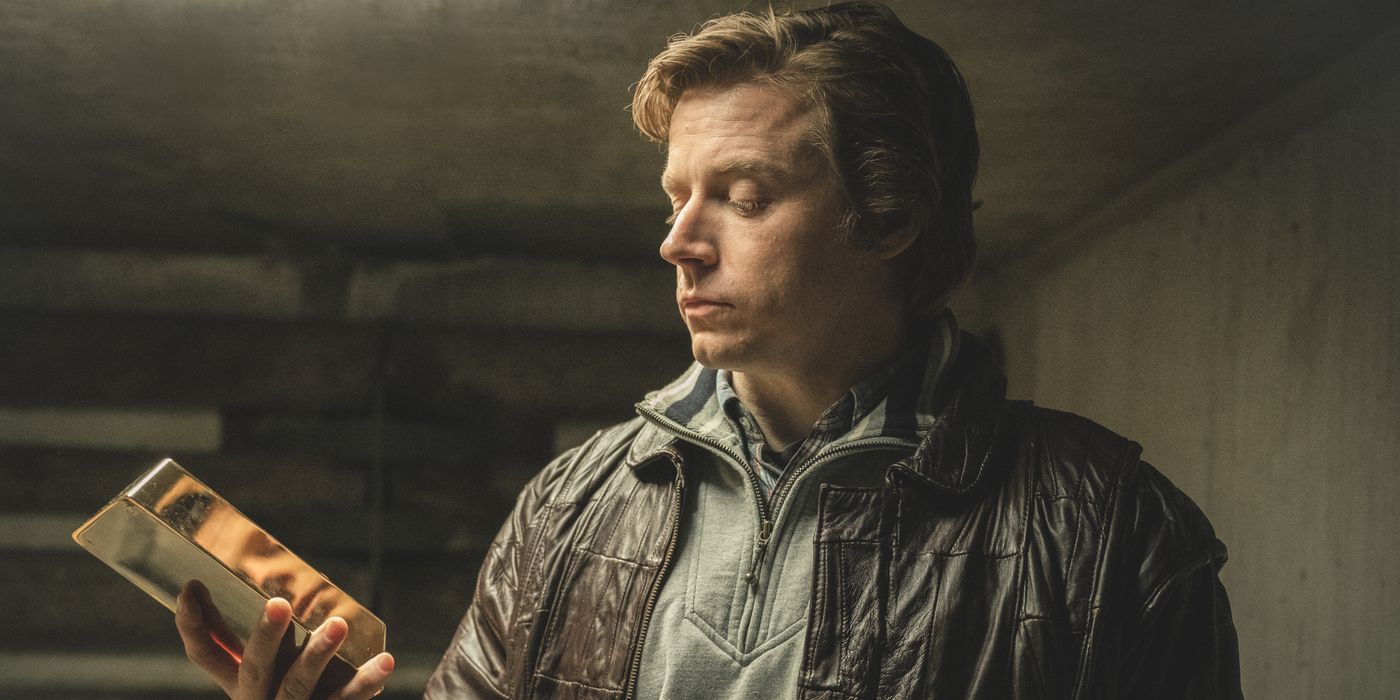One of Britain's most engaging thrillers is coming to Paramount+. The Gold revolves around three tons of gold bullion -- worth millions -- stolen in 1983. The Brink's-Mat robbery would go on to become infamous in the United Kingdom, so it's fitting that the TV retelling features a jaw-dropping cast headed up by Downton Abbey star Hugh Bonneville and Preacher's Dominic Cooper.
The mastermind behind the adaptation is award-winning screenwriter and author Neil Forsyth (Guilt), who knows a thing or two about true crime: he's written multiple books on the subject, including a book specifically about Brink's-Mat. He spoke to CBR about why he enjoys the genre, working with some of UK television's biggest names, and what sets The Gold apart from the glut of other true crime stories.
CBR: Your very first book in 2007, Other People's Money, told another true story about a different financial crime. What is it about true crime that appeals to you as a writer?
Neil Forsyth: I find the research really interesting. I also have written straight fiction -- both in terms of novels and television dramas -- which I really enjoy as well, and hopefully, I've done a decent job with. But [there's] something about true stories and meeting the people involved that I find quite motivating and intriguing. If I'm completely honest, I find it easier to write true stories because the story is all there. You've still got to shape it and manage it, but you take away that responsibility you have with straight fiction. If anything can happen, how do you decide what's going to happen and the blank page and everything else? With a true story, you can relax, and it's about finding your version of a story that already exists.
True crime, whether adaptations like The Gold or in unscripted forms, has become such a crowded genre. How would you say this specific story of the Brink's-Mat robbery sets itself apart? Was there a particular point of interest for you?
The complexity of it and the scale of it. Quite often, I get pitched true stories, and I think, "Well, that's really interesting, but it's not a television series." What's very rare with The Gold is there's actually too much story for six episodes. A lot of my challenge was winnowing it down. I like to write television shows with quite a lot of pace. If you're going to write a pace-y six-episode thing, you need a lot of story to feed into that. So I think [it was] the complexity of it, the surprising nature of it, [and] the fact that it's not well-known. People know about the robbery in the UK, but they don't know what happened next. I'm not just feeding the viewer something they think they already know. All those things came together to make it really attractive.
A huge selling point for the show is its cast. Once you'd landed the likes of Hugh Bonneville, who has the enduring popularity of Downton Abbey, Dominic Cooper, and Charlotte Spencer from Sanditon, did having that level of talent shape the scripts at all?
It's incredible for an ensemble show. A lot of times, with actors [on] that level, their agents will be very much saying they need to do lead roles. But they all came into this ensemble show because they were attracted by the material and the characters they got to play. The rehearsal process is always very interesting. I definitely see that as my last stage. Often, after rehearsal, I start to find little things in the language that are interesting or start to get a bit more of a sense of the voice. They all elevated the script. Actors of that level elevate what you've done [and] take a scene in a different direction than you expected. They come in with a performance and maybe movement that's really interesting and adds a whole other element to the character. It's really inspiring working with actors of this caliber. It was brilliant, great fun.
How did you effectively service all of the characters so that you got the most out of the talent?
I'm always aware of the story and character and how those two things interact. The story has to grow over the series in terms of complexity and stakes, but the characters need to grow along with it. Trying to manage those two things is quite complicated; you really need to work hard to achieve it. You need to be interested in the character. I want to know more about that character. I always try [to] do it as I go...Try [to] hit the ground running and reveal character through action as the story progresses. Don't stop the story to investigate the character. Find out about the character within the story.
You also try to keep the audience from getting bogged down in too many details or too many storylines. Is there a sequence from The Gold that you would say is particularly remarkable? What would you call memorable?
There's a sequence at the end of Episode 2, where I had to explain a very complicated process. I battled with how to tell that story for a long time, and I've done it in this hopefully quite creative montage sequence that becomes almost like a little short film. Lawrence Gough, the director on that episode, and the actors and the editors in particular -- we all came together to really nail that sequence.
I think the end of Episode 3, which is an extremely dramatic midpoint of the show, was beautifully shot by director Aneil Karia and very well acted by Hugh and Jack [Lowden]. Those two things jump out, and then, in general, it is a really interesting story. Hopefully, people will be sucked into that.
The Gold premiered Thursday, Sept. 17, on Paramount+, with new episodes streaming weekly.


